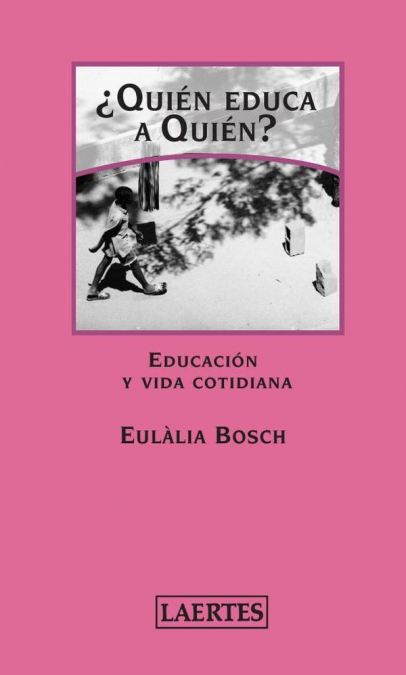
Eulàlia Bosch José
Eulàlia Bosch subraya el papel de la experiencia y de las relaciones personales, cotidianas, como espacio educativo difuso pero esencial, frecuentemente decisivo.Entendiendo la educación como una actitud de acompañamiento, exploración y diálogo que nos compete a todos, sin tiempos limitados ni comportamientos estancos, la autora inicia cada capítulo del libro con el relato de una experiencia que da a pie a una aguda reflexión sobre el carácter poliédrico de la relación educativa. Una relación bidireccional en la que el aprendizaje es un fluido de ida y vuelta y en la que es tan importante el que aprende como el que enseña.Como bien dice un provebio africano que se recoge en el libro, 'quien aprende, enseña'. Por ello, en ¿Quién educa a quién? los protagonistas son en último término de las niñas y niños, sus asombros, sus preguntas, sus intuiciones, en las situaciones más diversas - en la escuela, sí, pero también en la cocina, en la calle, en el cine, frente a un cuadro, ante la muerte de un ser querido-, no como portadores de verdades primigenias sino como incitación a la reflexión sobre nuestros modos estereotipos de ver y de vivir, como motor, en realidad, de todo posible proceso educativo vivo y atento a la vida.